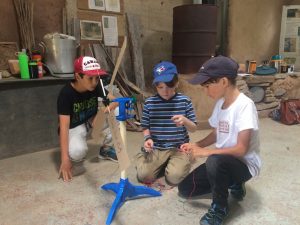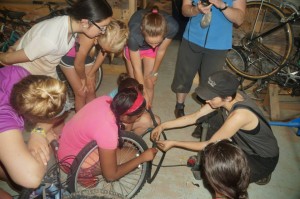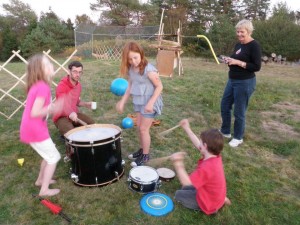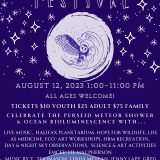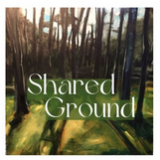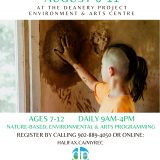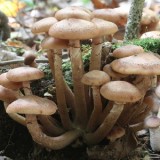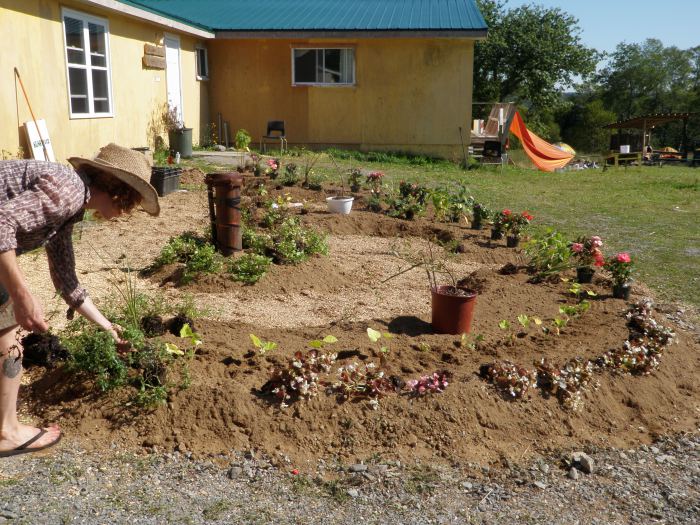As part of the Deanery’s commitment to all ages experiential, place-based learning we have developed a suite of curriculum-aligned workshops called Hands On! These programs focus on a diverse range of topics, and are available for all grade levels.
Hand’s On!
Environmental Education Programs
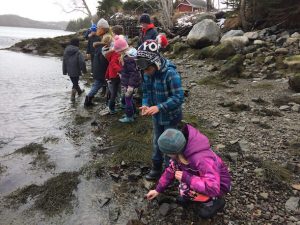 Hands On! workshops are curriculum-aligned and suitable for schools and organizations.
Hands On! workshops are curriculum-aligned and suitable for schools and organizations.
The training reflects the skills, passion and knowledge shared by our diverse community of instructors. Hands On! partners include the Ecology Action Centre; Heartwood Centre for Community Youth Development; Nova Scotia Sea School; and the Halifax Planetarium.
Each component of Hands On! is embedded in the concepts of climate change mitigation and transition to efficient, renewable energy-based systems. Workshops are designed to get children, youth and adults thinking about the fundamentals of climate change and how we can mitigate it through every day things at home, school, work and in our communities.
The workshop content is informed by the triple-lens of: environment, equity and economics. Facilitators encourage participants to take action towards a more sustainable future by making changes in their own lives. Our aim is to empower active and engaged citizens by allowing them to connect to their own knowledge, talents and strengths.
Hands On! workshops are interdisciplinary and intrinsically creative as art plays a key role in the Deanery’s mandate. We tailor our workshops to match identified learning outcomes in both on and off-site classroom settings, but encourage field trips to the Deanery for full, immersion experiences.
Workshop themes include:
- environment & eco-systems
- natural building & permaculture
- renewable energy
- health
- bicycles & active transportation
- forest ecology & survival skills
- food sovereignty
- climate change
- creative arts, especially with repurposed or natural materials
Please contact us for more information on programming opportunities either at the Deanery, or in your community.
Hands On! – A Sampling of Programs
Power Play allows students to experiment and play with wind- and sun-generated power. Hands on exploration of solar PV cells, model wind-turbines, watt meters and a Power Cost Monitor. These are some of the tools which are helping hasten our power shift to a fossil fuel free future.
Food Miles teaches students about food sovereignty and the local impacts of the global food chain. Highlighted are the environmental, social and health benefits of consuming foods produced close to home with in-depth discussion on greenhouse gas (GHG) emissions; fossil fuels; climate change, etc.
Permaculture Design delves into interdisciplinary topic areas like appropriate design and technologies; animals and carbon emissions; alternative economics; natural building; water use; soils and plants, among others.
Spinning Wheels gets students thinking about mitigating climate change through the modes of transportation they use. The focus is on active transportation in this whimsical and practical workshop which incorporates elements of bike maintenance, games, and bike art with topics like climate change and GHGs.
Sustainable Forestry considers the important role of healthy forests as carbon sinks in mitigating climate change now and into the future. In addition to being easier on the planet, sustainable silviculture is demonstrably more beneficial economically to landowners than clearcutting. Students will learn about carbon sinks; the Acadian forest; forest resources like food, fuel, medicine and shelter; and silviculture tools and techniques.
Earth Building introduces clay and soil as primary green building materials key to building a more sustainable future. These natural materials have been used to build structures like the pyramids, the Great Wall of China, palaces and millions of modest cottages around the world. Natural plaster made with clay is the ultimate renewable building resource as it can be reconstituted by adding water and used again should it be damaged. Natural building techniques offer efficiency, comfort and beauty and we have wonderful clay rich soils across Nova Scotia so it is an ideal local building material. Come get your hands dirty and discover the environmental and health benefits of building with earth.
Growing Goodness recognizes food sovereignty as an important aspect of mitigating climate change, with the industrialized global farming system contributing large amounts of carbon into the atmosphere. Local production and consumption using sustainable farming methods are important in shifting away from using fossil fuels in farming. In this workshop students will experience different growing methods and will begin to think about how our food choices impact our health and the health of our planet.
Art Makers, Earth Savers lets participants explore creative ways to use repurposed objects to produce art. One of the end results of this session is a group piece made using discarded bicycle parts. Discussion includes waste, reducing landfill mass, active transportation, GHGs, and rethinking consumption.
Overnight Astronomy Trip at our home base in Ship Harbour offers a perfect setting for star-gazing. Stay overnight in our bunkies and learn about astronomy while experiencing our amazing dark sky.
Additional information on our programs, including Learning Outcome alignment for specific grade levels, is available upon request. If you have other great ideas, let us know – we can often work with you to develop a program that suits your needs.
Facilities
The Deanery’s facilities support our workshops and programs by illustrating environmentally responsible ways of building and living. Sustainability is at the heart of all we do at the Deanery Project, whether we’re powering our buildings with solar energy, baking pizza in our outdoor clay oven, drying wood in our solar kiln, or harvesting food from the forest, we’re always looking for new ways to practice, teach, and engage our communities with environmentally sound practices. Story sharing around the fire pit, exploring the trails and beach, or hanging out around the wood or rocket stoves are all places we link learning with nature.
Environmental Education Resources
- Green Schools, the education branch of Efficiency Nova Scotia, offers environmental programming for schools. Their work with students through in-school clubs gives students concrete strategies for integrating efficiency into their daily lives.
- Tomatosphere is an innovative program offering students Grades K to 12 opportunities to participate in the ultimate citizen science experiment – exploring the effects of the space environment on food production, and the implications of food security on long-term space exploration.
- Green Teacher magazine is a great resource for ideas on how to approach environmental topics with youth from six to nineteen years old.
- Project Draw Down is a compendium of climate solutions as identified by a wide range of people working on the front lines of climate change research, policy development and action.
- The Centre for Local Prosperity is a Nova Scotia non-profit committed to the promotion of “local economic solutions for rural communities”. They offer conferences, local working sessions, and research that feeds into community consultations and change implementation.
- Clean Foundation’s mission is to provide the means, knowledge, and opportunity for individuals and communities to make responsible environmental choices through their environmental education and efficiency programs.
- The Ecology Action Centre’s Energy Action Team is working toward a fossil fuel-free future through education, consultation and advocacy. The Food, Marine, Wilderness, Transportation and Built Environment Teams all have useful environmental education resources.
This is an evolving list. If you have any resources to recommend, please let us know so we can share them.

